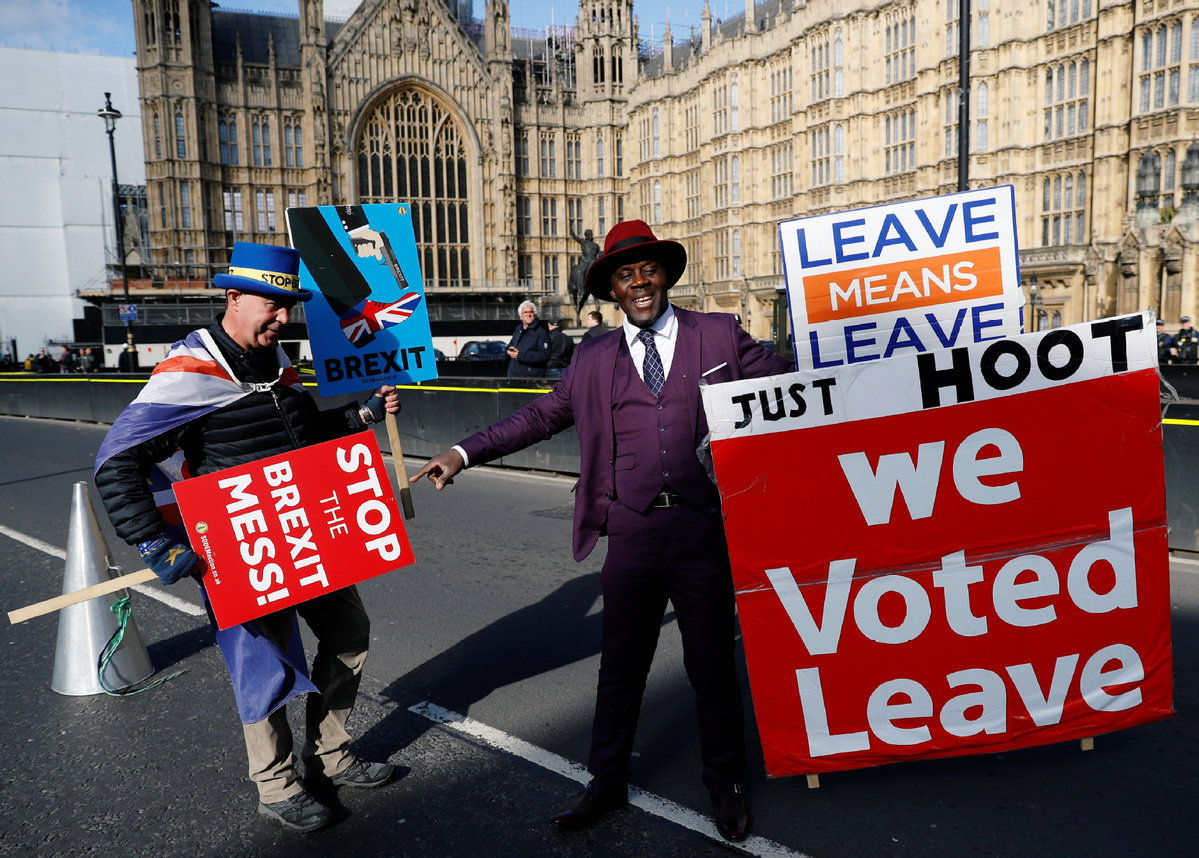The United Kingdom is more divided than ever along age, geographic and class lines, a survey by the polling organization BritainThinks has revealed.

An anti-Brexit and pro-Brexit protesters pose outside the Houses of Parliament in London, Britain, March 25, 2019. (Photo: Agencies)
Britons are more politically engaged than before the 2016 Brexit referendum, the results said, but at the same time have a remarkably low opinion of the country's politicians and the job they are doing.
"I have been listening to people in focus groups since the late 1980s and I cannot recall a time when the national mood was more despairing," pollster Deborah Mattinson told the Guardian newspaper.
"'Broken', 'sad', 'worried', 'angry'-the negatives tumble out, as does the long list of grievances. I'm hearing anxieties voiced in a way that I haven't heard since the 1990s: a rundown NHS, job insecurity, teacher shortages," she said.
The survey was carried out on more than 2,000 people in London and the Midlands city of Leicester, and painted a bleak picture of the national mood.
It highlighted that three-quarters of those asked said they thought that the Brexit divide between Leave and Remain supporters will get worse within the next year, and as the race to succeed Theresa May as prime minister continues, 86 percent asked said they thought the country needed a strong leader but only 21 percent thought that the winner of the race, whoever that may be, would be up to the job.
Issues such as homelessness, poverty and the risk of being a victim of crime were revealed to be major concerns, and there was a major optimism gap exists between different age groups.
Just 24 percent of those surveyed under the age of 34 felt positive about the country's future, as opposed to 52 percent of those aged more than 65.
"Younger people feel a strong sense of injustice," Mattison added. "Home ownership seems a pipe dream even for the relatively well off. Secure employment can be elusive for them too, despite being far better qualified than their parents and grandparents."
Only 58 percent of those surveyed said they believed the United Kingdom will still leave the European Union, an event which has already been postponed twice this year, and is now scheduled for Oct 31. In a BBC interview on Sunday, one of the leading candidates to be the next prime minister, Foreign Secretary Jeremy Hunt, said he could not promise he would be able to deliver Brexit by the end of the year.
However, despite the divisions, particularly on the inescapable issue of Brexit, there are some causes for optimism.
Two-thirds of those surveyed said they felt good about their homes, relationships and mental health, placing faith in traditional British stoicism and a belief that "British people will just get on with things regardless of the impact of Brexit".


